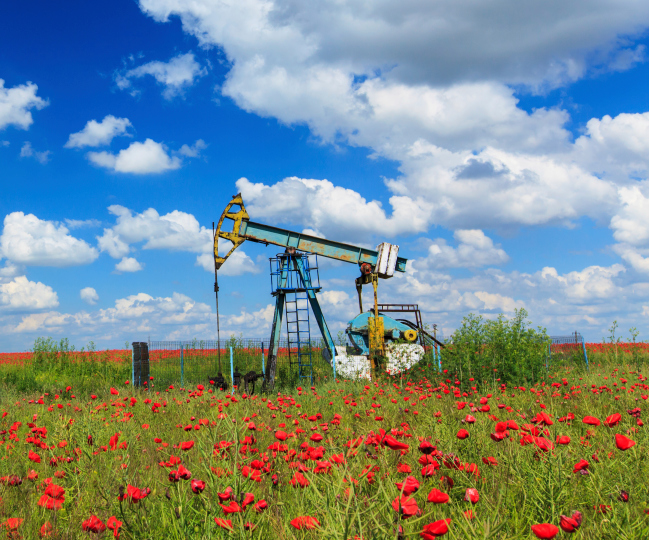By Linnea Lueken
Rep. Frank Pallone (D-NJ) introduced the Climate Leadership and Environmental Action for our Nation’s Future Act (CLEAN Future Act) in March. The bill contains a provision that could make most oil and gas wells too expensive to operate, forcing them to close.
The stated purpose of the bill is “To build a clean and prosperous future by addressing the climate crisis, protecting the health and welfare of all Americans, and putting the Nation on the path to a net-zero greenhouse gas economy by 2050, and for other purposes.”
Section 625 (B) states that within a year after the CLEAN Future Act is enacted, the U.S. Environmental Protection Agency (EPA) would have to “identify or list as hazardous waste any drilling fluids, produced waters, or other wastes associated with the exploration, development, or production of crude oil, natural gas, or geothermal energy that the Administrator determines, … meet the criteria … for the identification or listing of hazardous waste ….”
A report published by Rice University’s Baker Institute for Public Policy found water produced from oil and gas wells can currently be disposed of in 180,000 Class II wells across the country because it is not classified as hazardous and thus needs no special handling. However, the report says, if the water is classified as hazardous waste, there are fewer than 200 Class I wells nationwide that would be permitted to take it.
“Prohibitively Expensive”
The CLEAN Future Act would massively increase the cost of production, forcing operators to shut down wells, which is the true intent of the legislation, says Kenny Stein, policy director at the Institute for Energy Research.
“[T]he purpose of this provision is to destroy the domestic oil and gas industry,” said Stein. “Reclassifying produced water as hazardous waste would make domestic oil and gas production hugely more expensive, likely prohibitively expensive for many fields and wells.”
Dramatically reducing oil and gas production will not actually prevent any alleged “climate crises,” says Stein.
“The irony, from an environmental perspective, is that choking off domestic production would simply mean the United States, and other countries demanding oil and gas, would have to import it from countries where environmental standards are far lower than those in the United States, or even effectively nonexistent,” Stein said.
Closing Nonexistent Loopholes
Environmentalists claim there is a loophole allowing hydraulic fracturing production to operate without being subject to the Safe Drinking Water Act, Stein says, but they are wrong.
“The impetus for this provision comes from a belief among environmentalists that hydraulic fracturing is benefiting from a ‘loophole’ passed as part of the 2005 Energy Policy and Conservation Act.” Stein said. “The provision, adopted to conform to a Circuit Court ruling, clarified the historical practice that fluids used for hydraulic fracturing, other than diesel, were not subject to regulation under the Safe Drinking Water Act because they don’t pose a danger to drinking water supplies.
“In reality, even the Obama-era EPA acknowledged there is no evidence of hydraulic fracturing threatening drinking water supplies, which makes perfect sense because the fracturing process happens thousands of feet below the water table,” Stein said. “This provision is an end run around that reality, seeking to treat everything coming out wells as hazardous waste in order to shut down production.”
‘Transparent Assault on … Production’
This bill is not about protecting drinking water, rather it’s about shutting the domestic oil and gas industry down, says Jay Lehr, Ph.D., senior policy advisor with the International Climate Science Coalition.
“This is a transparent assault on oil and gas industry aimed at forcing the country to rely on wind and solar, which the left knows is not possible and will require the rationing of electricity to the public which is their primary intention,” Lehr said. “The chemicals used in fracking wells either reduce surface tension to allow oil and gas to flow more easily over the surfaces of the shale rock and sand and gravel in which it is contained, or prevent the formation of algae which clogs the pores of the fractured rock so a very mild biocide is used in minute quantities.
“Any knowledgeable scientist, engineer, and oil rig worker knows fracking fluids are safe,” said Lehr. “This legislation if passed could end America’s dominance in the production of oil and natural gas.”
Pallone’s bill would undermine modern society, says Gary Stone, executive vice-president of engineering with Five States Energy.
“Rep. Pallone suffers from either a myopic ignorance about the importance of petroleum in modern life or an evil desire for complete chaos and anarchy throughout the country,” said Stone. “In addition to the obvious transportation and power uses for oil and gas, virtually every commercial product used or consumed in modern society, including food, is either directly or indirectly produced using petroleum.
“His proposal would totally shut down drilling and most producing wells; existing storage would be depleted in a matter of days and any petroleum used thereafter would be imported at exorbitant prices; modern society as we know it would in essence shut down,” Stone said. “The recent supply disruptions due to electronic chip and worker shortages would be a drop in the bucket compared to the chaos that would ensue—the ‘progressive’ agenda and attack on oil and gas is a death knell for the country.”
Pallone’s bill currently awaits action in the House after being introduced in March.
Linnea Lueken (linnea.heartland@gmail.com) writes from Laramie, Wyoming.
